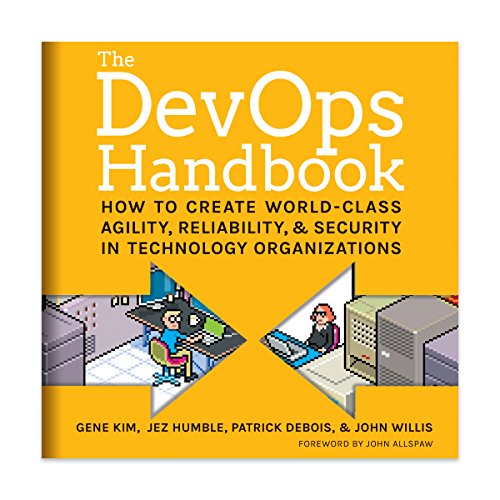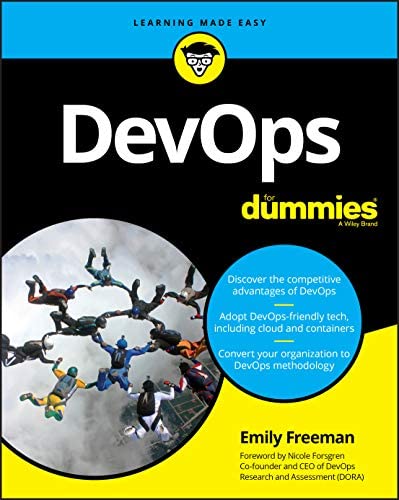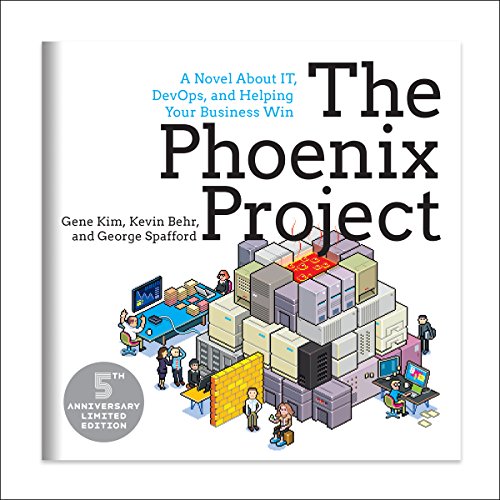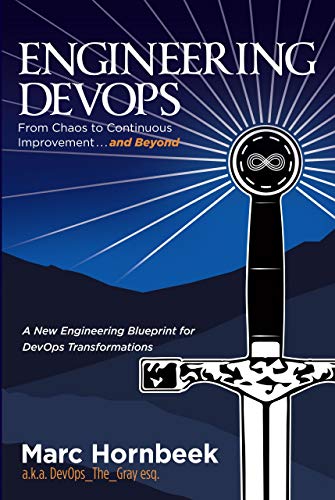As more and more companies continue to embrace DevOps practices, the demand for DevOps engineers is growing fast. In fact, this is one of the most lucrative technology roles today with a national average salary of $105,035, according to Glassdoor. So what does a DevOps engineer do?
A DevOps engineer wears many hats and the roles and responsibilities vary across different organizations. This has led to a lot of misconceptions about the title. We’ve written this article to shine light on this in demand position.
Whether you’re interested in becoming a DevOps engineer or looking to hire a good one to oversee the implementation of DevOps in your organization, read on to learn more about the role and what it takes to be good at it.
Disclosure: This article includes affiliate links that may provide a commission to me at no cost to you if you make a purchase through them.
Table of Contents
- Who is a DevOps Engineer?
- What Does a DevOps Engineer Do?
- What Tools Does a DevOps Engineer Use?
- What Does it Take to Become A Good DevOps Engineer?
- Recommended DevOps Books and Courses
- The DevOps Handbook
- DevOps For Dummies
- The Phoenix Project: A Novel about IT, DevOps, and Helping Your Business Win 5th Anniversary Edition
- Engineering DevOps: From Chaos to Continuous Improvement … and Beyond
- Continuous Delivery & DevOps Course
- Preparing for Google Cloud Certification: Cloud DevOps Engineer Professional Certificate Course
Who is a DevOps Engineer?
DevOps is all the rage right now. Organizations, big and small, are instituting it to streamline and speed up the delivery of software applications and their updates.
The DevOps engineer is at the heart of this practice. He or she is the liaison between the development (coding) and operations (deployment and maintenance) teams. The principal officer responsible for implementing DevOps to ensure faster software release cycles and efficient updates.
The DevOps engineer accomplishes this by automating processes and workflows and using a collaborative approach to eliminate bottlenecks and accelerate productivity.
What Does a DevOps Engineer Do?
A DevOps engineer fulfills a wide range of responsibilities in both development and operations. The person bearing the role wears many hats including:
- DevOps Evangelist or Advocate
- Release Manager
- Automation Expert
- Software Developer/ Tester
- System Administrator
- Quality Assurance
- DevOps Security
- Project manager
Besides coding, testing and integrating snippets of code, and deploying them continuously, a day in the life of a DevOps engineer also entails the following:
- Implementing a DevOps culture and instilling DevOps values in the organization
- Setting up and maintaining the tools and the infrastructure the DevOps team uses
- Deploying and maintaining the servers and network resources.
- Orchestrating a stable and efficient automated delivery pipeline
- Automating and improving development and release processes
- Strategizing the continuous integration and deployment process
- Monitoring production environments and application performance
- Ensuring production systems are always up and available
- Resolving problems through support or technical troubleshooting
- Ensuring security of both the infrastructure and application in all stages
- Managing the who, how, where, and when of projects.
- Fostering a collaborative environment where multiple teams work together simultaneously
- Communicating operational requirements and development forecasts
- Deploying, securing and supporting cloud infrastructure solutions
- Keeping a “customer first” mindset to ensure delivery of quality products and services
What Tools Does a DevOps Engineer Use?
DevOps is all about automation and collaboration and all the stages in the pipeline require different tools and technologies. Here are the most common tools and technologies that DevOps engineers use.
- Automation tools: Jenkins, Bamboo
- Version control tools and source code management: Git, GitHub, Bitbucket
- Containerization tools: Docker, Kubernetes, Swarm
- Configuration management tools: Puppet, Ansible, Chef
- Monitoring and analytics: Nagios, Raygun
- Project management: Jira, Trello
- Automation Tools: Selenium, Jenkins
- Cloud resources and services: AWS, Microsoft Azure and Google Cloud
What Does it Take to Become A Good DevOps Engineer?
Fulfilling all the above roles and responsibilities calls for a diverse skill set. A DevOps leader should possess a unique mix of technical and soft skills. Let’s start with the hard skills:
Technical Skills A DevOps Leader Should Have
Scripting and coding skills are necessary for writing automation scripts and debugging code. But rather than be a master of one language, a DevOps engineer should be familiar with multiple coding and scripting languages such as Java, JavaScript, Perl, Ruby, Python, PHP, Groovy, C++, Go, Bash, Shell, etc.
- Thorough knowledge of the traditional software development life cycle
- An understanding of DevOps culture, philosophy, practices, and tools and Agile methodology
- A working knowledge of the different tools used in the DevOps pipeline
- A good understanding of testing and quality assurance
- A strong knowledge of continuous integration practice
- Experience with operating system platforms such as Windows and Linux
- Have a thorough knowledge of System administration and IT best practices
- Expertise in software code testing and deployment
- Well-versed with the practice of virtualization
- Have a strong understanding of all the components of a delivery pipeline
- Know how public, private, and hybrid clouds operate
- Know how to troubleshoot and resolve technical issues
Soft Skills A DevOps Engineer Should Possess
- Communication skills: The DevOps leader role calls for excellent communication skills. He or she has to communicate with software developers, IT professionals, project managers, and stakeholders
- Collaboration Skills: After all, this is a cross functional role that entails collaborating with multiple people from diverse teams.
- Team Skills: Making different teams with varying goals work together towards a common goal takes not just a team player but also a team leader and mentor.
- Flexibility and Ability to Multitask: A DevOps engineer handles a wide range of situations and tasks in a day. He or she should have the ability to juggle multiple tasks. This also calls for excellent organization and time management skills.
- Problem-solving skills: The primary DevOps officer is a skilled problem solver with a knack for identifying problems and bottlenecks and resolving them.
- Passion: It takes genuine passion to thrive in this kind of role. From being able to get the entire organization on board to staying abreast of the latest developments in the area.
What is the Educational and Professional Background of a DevOps Engineer?
Good DevOps engineers can spring from all walks of IT life. They are either software developers who get into deployment and network operations or system administrators who are also interested in writing scripts and code.
Most job adverts for DevOps engineers cite a bachelor’s degree in a STEM field such as Computer Science, Engineering, Software Engineering, or Math as the educational requirement. A Master’s degree is usually considered a bonus but some organizations have it as a requirement.
Recommended DevOps Books and Courses
Does the position of a DevOps engineer sound exciting? Think you have what it takes to thrive in the role? Here are some books and courses you can take to equip yourself with the knowledge and skills you will need to land the role and thrive.
The DevOps Handbook

The DevOps Handbook is the definitive guide to DevOps and one of the best books available on the subject currently. It explains DevOps concepts and principles, provides insights into modern IT operations, and describes how to set up your DevOps organization. Best of all, the book features numerous case studies for practical implementation advice. Finally, it’s written in an easygoing approach making it an enjoyable read.
DevOps For Dummies

DevOps For Dummies is a fantastic book to start with as you delve into DevOps. It takes a holistic approach and guides on successful DevOps strategy and implementation. From identifying bottlenecks to the necessary cultural changes. The writing style is informative yet witty and engaging.
The Phoenix Project: A Novel about IT, DevOps, and Helping Your Business Win 5th Anniversary Edition

The Phoenix Project is a DevOps book delivered as a work of fiction. This makes it an entertaining read while also being very effective at articulating the concepts of DevOps, illustrating the issues faced, and demonstrating how to improve workflows effectively. The scenarios and characters reflect real world concepts and people. Overall, a must read for anyone who works in an IT / DevOps environment.
Engineering DevOps: From Chaos to Continuous Improvement … and Beyond

Engineering DevOps does an excellent job of covering what engineering practices are needed to achieve the three ways of DevOps successfully. No matter your role, level, or knowledge, it will guide you on how to implement DevOps properly or improve it. Practical guidelines and real world examples clarify the journey to DevOps and Continuous Improvement.
Continuous Delivery & DevOps Course
Offered by the Darden School of Business at the University of Virginia, Continuous Delivery & DevOps is a great introduction to DevOps course. It will give you a good understanding of how CI/CD and DevOps work in an organization. The course is beginner friendly, with clear and concise explanations and quizzes to help cement what you learn. It even has examples of how companies have implemented DevOps successfully.
Preparing for Google Cloud Certification: Cloud DevOps Engineer Professional Certificate Course
Preparing for Google Cloud Certification is a great course to enroll in in order to advance your career as a DevOps engineer. You will learn the skills you will need to thrive in a cloud DevOps engineering role, learn how to use Google Cloud to build software delivery pipelines and it will also help you prepare for the industry-recognized Google clouds professional DevOps Engineer Certification.
In Conclusion
Being a DevOps Engineer is certainly no easy walk in the park. It’s a demanding role that demands a varied skills set. It’s also a very dynamic role that keeps evolving. Still, the role is worth it for both businesses and the organization.
Adopting DevOps successfully comes with a positive bottom line for the organization. For the DevOps engineer, overseeing the implementation of DevOps practices is a very exciting challenge. The lucrative DevOps engineer salary is the cherry on top!
Mike is the creator of Go With Code and a coder at heart 🙂